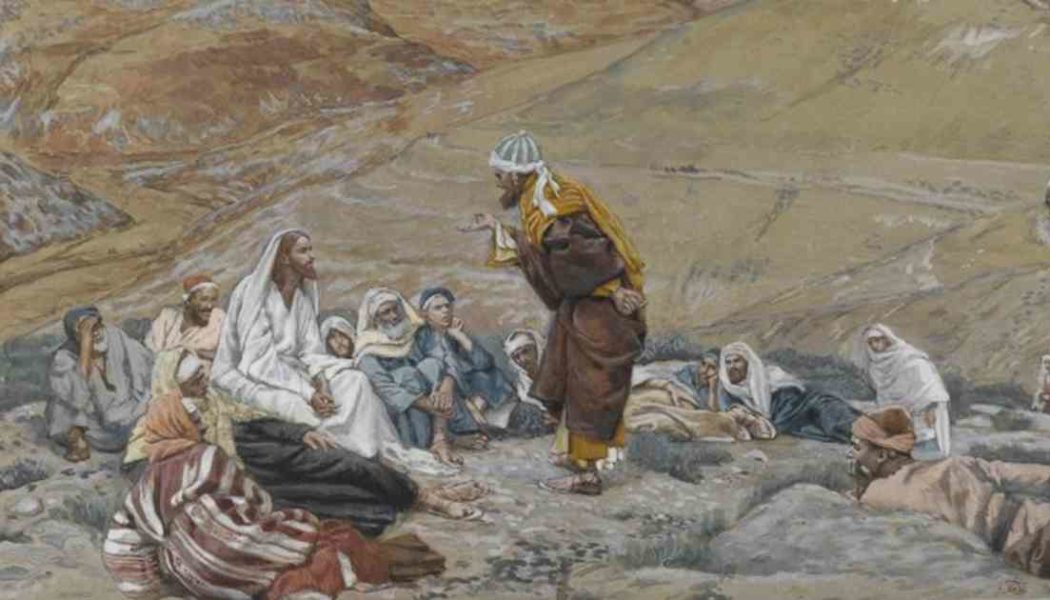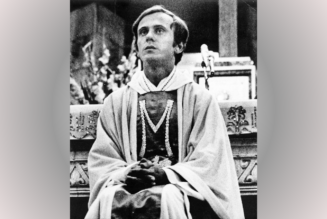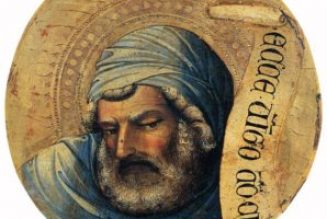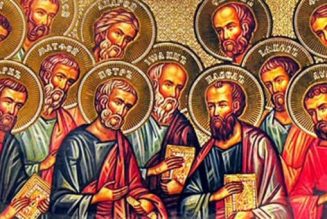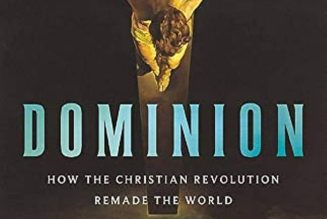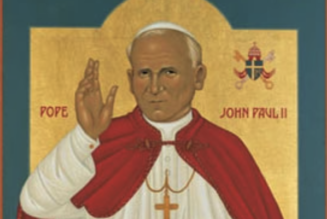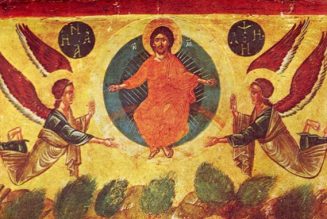
Here are six main points about the story of the scribe asking Jesus to name the greatest commandment on the Thirty-first Sunday in Ordinary Time Year B — taken from my podcast episode on the subject and previous “This Sunday” pieces on this site.
First: This question came at an exhausting time of questioning for Jesus.
The question from the scribe about the commandments comes after a number of challenges to Jesus on the week he died. First, Herodians and Pharisees and Sadducees tried to trap him with tough questions, and Jesus did verbal jiu jitsu to win each time while teaching something important.
But that isn’t what happens here, in the Gospel of Mark. This is a fair question from a good guy — a scribe who is genuinely searching for answers. I always picture him as a young man who is dedicated to truth and hasn’t been corrupted by power politics.
He asks a simple question — “Which is the first of all the commandments?” — and gets a beautiful answer.
Jesus tells him not just that the greatest commandment is “You shall love the Lord your God with all your heart, with all your soul, with all your mind, and with all your strength,” but that there is a second great commandment: “You shall love your neighbor as yourself.”
“There is no other commandment greater than these,” he says.
Second: These commandments didn’t originate with Jesus — but they were still surprising.
Jesus is repeating the Law’s teaching about our relationship with God from Deuteronomy and elevating what the Law says about our relationship with our neighbor in Leviticus, while synthesizing the two.
The original in Deuteronomy was a formula that all Jews would have memorized. We hear it in the First Reading.
But the Second Greatest commandment is truly a surprise. In Leviticus this commandment is not presented as a centerpiece of the Law. It says: “You shall love your neighbor as yourself: I am the Lord.” But then the text immediately starts talking about the breeding of cattle.
The scribe recognizes how wise it is that Jesus picked it out like that, and says that to love God above all and neighbor as self is “worth more than all burnt offerings and sacrifices.”
For the Jewish scribe, this amounts to a revolution in individualism: It puts his personal love for God on a par with sacrifices offered in the Temple. For Americans today, it represents a revolution in community: It tells us that our love for God is not merely private but must necessarily direct us toward others.
Third: We learn here that love is something you can be commanded to do.
We tend to think of love as an emotion, or a passion. Love is something we “fall” into; we watch relationships to see if they become “love” or stay at some earlier stage.
But that’s not what love is. St. Thomas Aquinas defines love, charity, as “the choice to will the good to the other.” You can choose to love God, by choosing to pray, choosing to follow his commandments, choosing to make use of the sacraments, and asking for the grace to love more.
And you can choose to love others by praying for them, sacrificing for them, and doing what good you can for them.
This can be hard, I know. The Forgiveness Prayers on our site have this to say about forgiving those who have hurt you:
“Forgiveness is an act of the will, not a feeling. If we pray for a person, we can be assured that we have forgiven that person. To help accept an individual and open ourselves to a particular person more, picture that person with the Lord Jesus and say to the Lord, “I love him because You love him. I forgive him because You forgive him.”
Fourth: God gave us two great icons to help us fulfill these two commandments.
God knows that we have a hard time understanding how to love the unseen God who is shrouded in mystery, so God Father gave us Jesus. By seeing him, a man like us, his arms open wide for us on the cross, we learn to love God properly, because it is easy to love a person who has loved us and died for us.
But God also gave us an icon of what it means to love others: our mirror.
We know how important every person is because we know how important we are. We know what people need and want, because we know what we need and want. We know people need love even though they are far from perfect, because we are far from perfect and we need love.
Sixth: In fact, every Sign of the Cross we make sums up this Gospel.
In the Catholic Church we have another constant reminder of both these commandments.
I teach my children that when you cross yourself, first you touch your temple, to remind you to love God with all your mind; then you touch your chest to remember to love him with all your heart; then you point from your shoulder to shoulder, reminding yourself to love him with all your soul and all your strength.
Of course, you are also making the Sign of the Cross over your body, reminding yourself that Jesus Christ died on the cross for you and for everyone you meet — so you should also love others as you love yourself.
Image: Picryl, Brooklyn Museum, Scribe and Jesus
